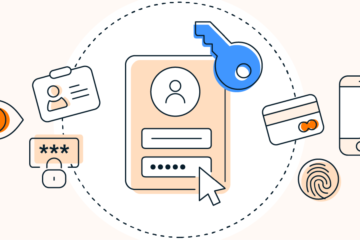Facing unexpected financial challenges can be daunting, and often, an emergency loan becomes an essential lifeline. While securing a loan may provide immediate relief, managing repayment effectively is crucial to ensuring your financial stability and avoiding long-term debt issues. In this article, we’ll explore practical strategies to manage and repay your emergency loan efficiently, so you can regain control over your financial health.
Understand the Loan Terms
The first step in managing your emergency loan is to fully understand the terms and conditions of your agreement. Pay particular attention to the interest rates, repayment schedule, and any additional fees that may apply. Knowing these details will help you plan and budget appropriately, avoiding any surprises that might arise during the repayment period. If there are any terms you’re unsure about, don’t hesitate to contact your lender for clarification.
Create a Repayment Plan
Once you understand the specifics of your loan, it’s crucial to create a realistic repayment plan. Start by assessing your current income and outgoings to establish how much you can afford to repay each month. This will help you determine whether you’ll need to make lifestyle adjustments to accommodate loan payments. Prioritise your loan repayments in your budget to prevent any missed payments, which can negatively impact your credit score and lead to additional fees.
Consider Early Repayment Options
If your financial situation allows, consider paying off your loan early. Many lenders offer early repayment options, which can save you money on interest in the long run. Be sure to check whether early repayment penalties apply with your loan agreement, as some lenders may charge a fee for settling your loan ahead of schedule. Even if early repayments aren’t feasible, making extra payments whenever possible can significantly reduce the overall cost of your loan.
Communicate With Your Lender
Open communication with your lender can be invaluable, especially if you’re facing difficulties with repayments. If you foresee any changes in your financial circumstances, inform your lender as soon as possible. Many lenders are willing to negotiate revised payment schedules or offer temporary relief options like loan modifications or forbearance. Proactively reaching out can help you find a mutually agreeable solution and prevent default.
Explore Refinancing Options
As part of your loan management strategy, explore the possibility of refinancing your emergency loan. Refinancing can offer a way to lower your interest rates, reduce monthly payments, or extend your repayment term, making it easier to manage your debt. While this isn’t always an option, if your credit has improved since you took out the loan, you might qualify for more favourable terms. Weigh the benefits against any refinancing costs to ensure it aligns with your financial goals.
Seek Financial Advice
Don’t hesitate to seek professional financial advice if you’re unsure about the best way to manage your loan. A financial advisor can help you review your finances, create a comprehensive budget, and set up a manageable repayment plan. They can also provide insights into broader financial practices that improve your financial health and prevent future reliance on emergency loans.
Build an Emergency Fund
Finally, aim to build an emergency fund to reduce the likelihood of needing another emergency loan in the future. Even small, regular contributions can quickly add up, providing a buffer for unforeseen expenses. With a solid emergency fund, you’ll have more peace of mind and a financial safety net that allows you to handle emergencies without resorting to loans.
In conclusion, managing an emergency loan effectively requires a combination of understanding your loan terms, planning, and proactive financial management. By following these tips, you can repay your debt efficiently and maintain better control over your financial situation. Remember, the key is to stay informed, communicate with your lender, and seek help when needed, setting the stage for a more secure financial future.
Stay in touch to get more news & updates on Gossips!




